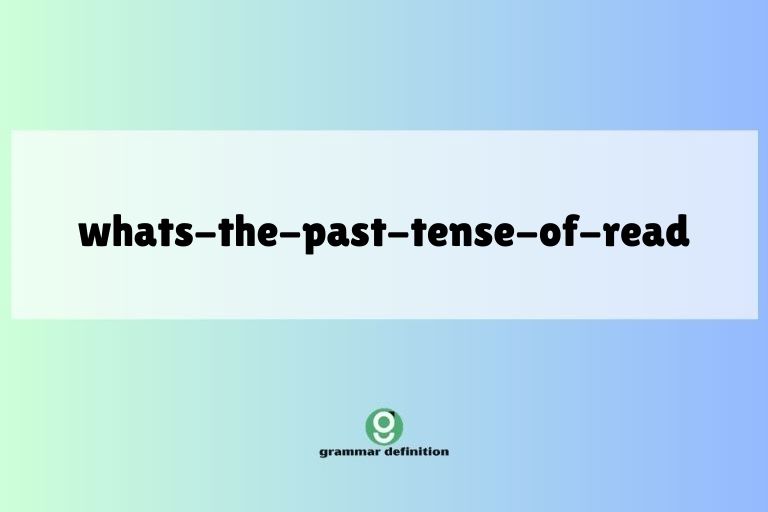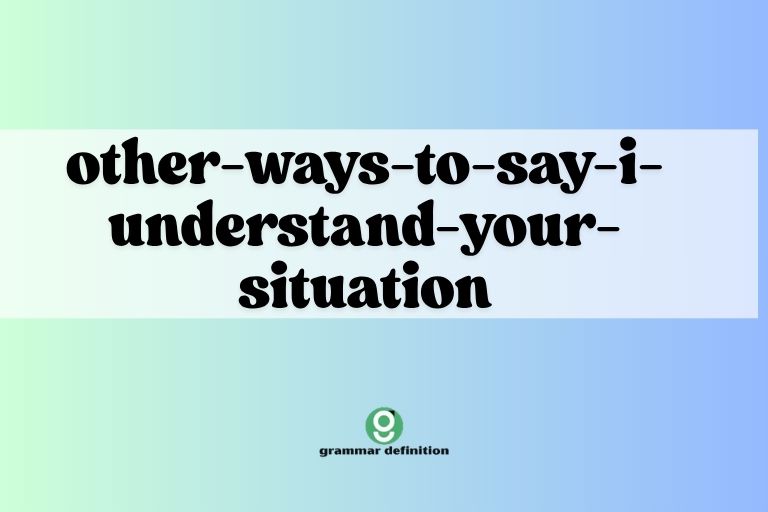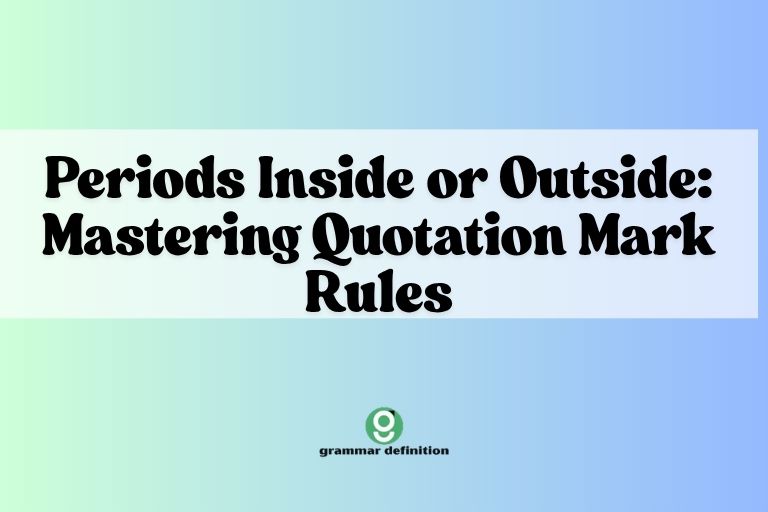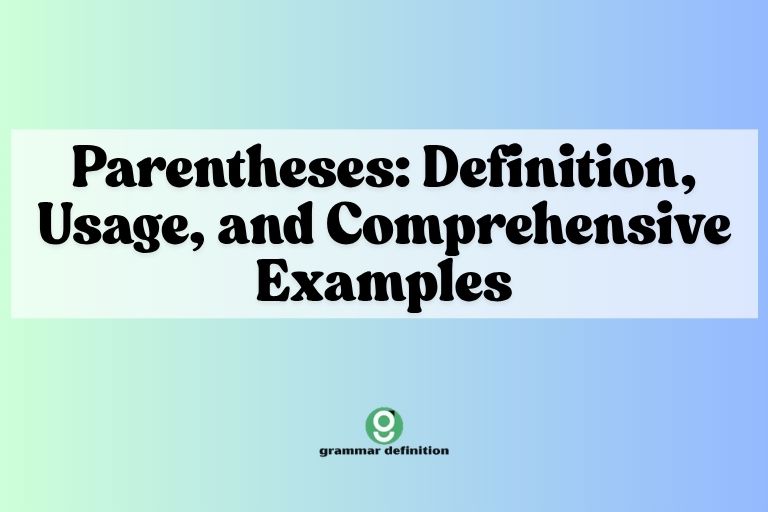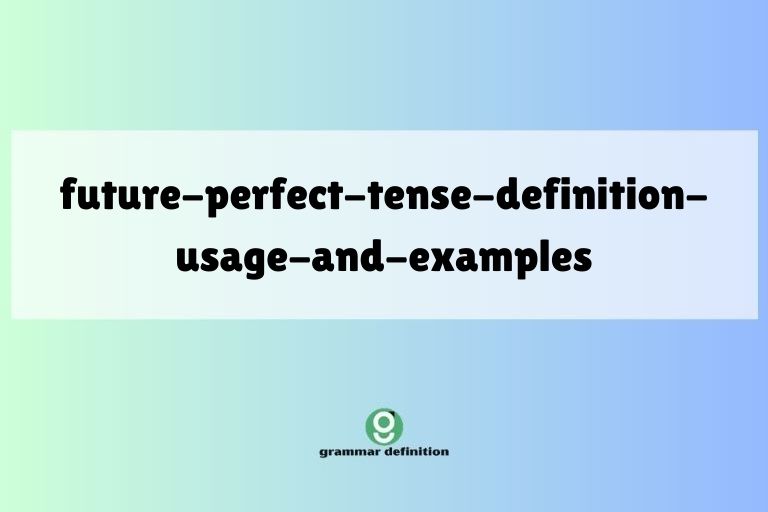Beyond “I Hope Everything Goes Smoothly”: Diverse Alternatives
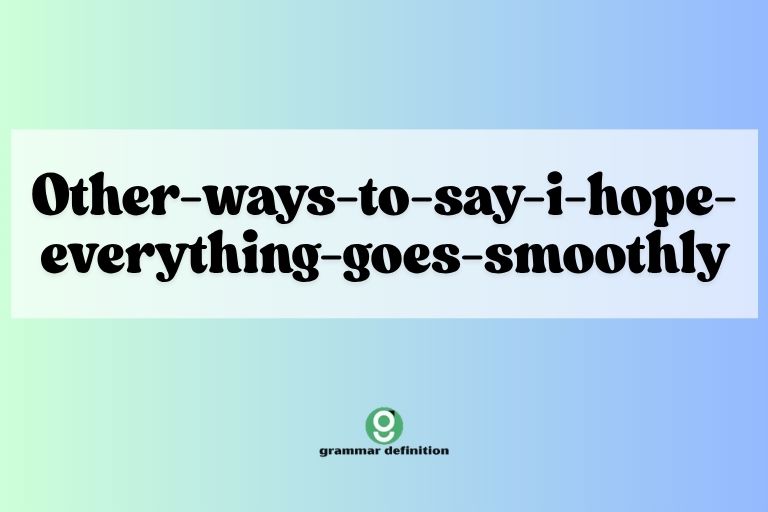
Expressing good wishes is a fundamental aspect of communication, and the phrase “I hope everything goes smoothly” is a common way to convey this sentiment. However, relying solely on this phrase can limit your expressive range and make your communication sound repetitive.
This article explores a variety of alternative expressions that capture the same intention but offer nuances in formality, context, and emotional tone. Understanding these alternatives allows you to communicate more effectively and appropriately in different situations.
This guide is beneficial for English language learners, professionals aiming to refine their communication skills, and anyone seeking to add variety and precision to their everyday language.
By mastering these alternative expressions, you’ll be better equipped to articulate your hopes and wishes in a manner that resonates more effectively with your audience, enhancing your overall communication prowess. This comprehensive guide provides detailed explanations, diverse examples, and practical exercises to solidify your understanding and application of these phrases.
Table of Contents
- Introduction
- Definition: Expressing Hope for Smoothness
- Structural Breakdown of Hopeful Expressions
- Types and Categories of Alternative Expressions
- Formal Expressions
- Informal Expressions
- Context-Specific Expressions
- Expressions with Emphasis
- Examples of Alternative Expressions
- Formal Examples
- Informal Examples
- Business-Related Examples
- Personal-Related Examples
- Event-Related Examples
- Usage Rules and Guidelines
- Formality Considerations
- Contextual Appropriateness
- Tone and Nuance
- Common Mistakes to Avoid
- Practice Exercises
- Exercise 1: Fill in the Blanks
- Exercise 2: Rewriting Sentences
- Exercise 3: Choosing the Right Expression
- Advanced Topics
- Idiomatic Expressions
- Cultural Sensitivity
- Frequently Asked Questions (FAQ)
- Conclusion
Definition: Expressing Hope for Smoothness
The phrase “I hope everything goes smoothly” is a common expression of wishing someone success or good fortune in an endeavor, particularly by avoiding problems or complications. It conveys a desire for a process or event to proceed without difficulty or interruption.
At its core, the expression combines a personal hope (“I hope”) with a desired outcome (“everything goes smoothly”). The term “smoothly” emphasizes the absence of obstacles, setbacks, or unpleasant surprises.
This type of expression falls under the broader category of optative statements, which are sentences that express a wish, hope, or desire. Its function is primarily phatic, meaning it serves to establish or maintain social relationships by expressing goodwill. The phrase is generally considered polite and considerate, making it suitable for a variety of contexts, from professional interactions to personal conversations. However, its simplicity can sometimes make it seem generic, hence the importance of learning alternative expressions to add depth and specificity to your communication.
Structural Breakdown of Hopeful Expressions
Expressions similar to “I hope everything goes smoothly” typically follow a basic structure that includes a declaration of hope or wish, followed by a description of the desired outcome. Let’s break down the key structural elements:
- Declaration of Hope: This usually involves a verb like “hope,” “wish,” or “trust,” often accompanied by a personal pronoun (e.g., “I,” “we”). Examples include: I hope, I wish, We trust.
- Subject (Optional): Sometimes, the subject of the desired outcome is explicitly stated. This can be “everything,” “it,” “the meeting,” “your presentation,” etc. If the subject is clear from context, it may be omitted.
- Verb of Action: This describes the action that is hoped to occur without problems. Common verbs include “go,” “proceed,” “run,” “work out,” and “turn out.”
- Adverb of Manner: This modifies the verb of action, specifying how the action should occur. “Smoothly” is a common adverb, but alternatives like “well,” “successfully,” “seamlessly,” and “without a hitch” can also be used.
- Additional Clauses (Optional): Additional clauses can be added to provide more detail or context. For example, “I hope everything goes smoothly with the new project” or “I hope everything goes smoothly, and you achieve your goals.”
Understanding these structural elements allows you to construct a wide range of alternative expressions that convey similar meanings with varying degrees of formality and emphasis. By manipulating these elements, you can tailor your expression to suit the specific context and your personal communication style.
Types and Categories of Alternative Expressions
Alternative expressions for “I hope everything goes smoothly” can be categorized based on several factors, including formality, context, and the level of emphasis. Here’s a breakdown of these categories:
Formal Expressions
Formal expressions are suitable for professional settings, interactions with superiors, or situations where a degree of politeness and respect is required. These expressions often use more sophisticated vocabulary and avoid contractions or colloquialisms.
They are appropriate when addressing someone you don’t know well or when the situation demands a certain level of decorum.
Informal Expressions
Informal expressions are appropriate for casual conversations with friends, family, or close colleagues. These expressions often use simpler vocabulary, contractions, and a more relaxed tone.
They are suitable for situations where a high degree of formality is not necessary or expected.
Context-Specific Expressions
Context-specific expressions are tailored to particular situations or events. These expressions use vocabulary and phrasing that are relevant to the specific context, making them more precise and impactful.
For example, an expression used for a business presentation will differ from one used for a wedding.
Expressions with Emphasis
Expressions with emphasis convey a stronger sense of hope or desire. These expressions often use intensifiers or more forceful language to underscore the importance of the desired outcome.
They are suitable for situations where you want to express a high degree of concern or support.
Examples of Alternative Expressions
Here are numerous examples of alternative expressions for “I hope everything goes smoothly,” categorized by formality, context, and emphasis. These examples are designed to provide a comprehensive overview of the various ways you can express your good wishes in different situations.
Formal Examples
The following table provides formal alternatives to “I hope everything goes smoothly.” These are suitable for professional environments or when addressing someone with respect.
| Formal Expression | Context |
|---|---|
| “I trust that the proceedings will be without incident.” | Formal meeting or legal context |
| “I anticipate a seamless execution of the plan.” | Project management, strategic planning |
| “I am confident that the operation will proceed successfully.” | Medical or technical operation |
| “It is my sincere hope that all endeavors will be fruitful.” | General expression of good wishes |
| “I am optimistic that the venture will be a resounding success.” | Business venture, new project |
| “I have every expectation that the process will be efficient and effective.” | Process improvement, workflow optimization |
| “I am hopeful for a positive outcome in this matter.” | Legal or diplomatic situation |
| “We are assured that the transition will be managed with expertise.” | Organizational change, merger |
| “I am confident that the team will perform admirably.” | Performance review, team project |
| “It is my expectation that the event will unfold as planned.” | Event planning, logistical arrangements |
| “I trust that your presentation will be well-received.” | Business presentation, conference |
| “I anticipate a favorable resolution to the negotiations.” | Contract negotiations, dispute resolution |
| “I am hopeful that the audit will be completed without complications.” | Financial audit, compliance review |
| “It is my sincere wish that your journey will be safe and pleasant.” | Travel, business trip |
| “I am optimistic that the project will be delivered on time and within budget.” | Project management, construction |
| “I have every expectation that the training program will be beneficial.” | Employee training, skill development |
| “I am confident that the system upgrade will be implemented flawlessly.” | IT project, software deployment |
| “It is my hope that the conference will be informative and productive.” | Academic conference, industry event |
| “I trust that your meeting with the client will be successful.” | Sales meeting, client relationship management |
| “I anticipate a positive response to your proposal.” | Business proposal, funding request |
| “I am hopeful that the investigation will uncover the truth.” | Internal investigation, legal inquiry |
| “It is my sincere wish that you will achieve your objectives.” | Goal setting, personal development |
| “I am optimistic that the company will overcome its challenges.” | Business turnaround, crisis management |
| “I have every expectation that the new policy will be well-received by employees.” | Policy implementation, change management |
| “I am confident that the research findings will be significant.” | Scientific research, academic study |
This table showcases how to express a desire for a positive outcome in formal contexts, using language that is respectful and professional.
Informal Examples
The following table provides informal alternatives to “I hope everything goes smoothly.” These are suited for conversations with friends, family, or close colleagues.
| Informal Expression | Context |
|---|---|
| “Fingers crossed that it all works out!” | General expression of hope |
| “Hope it all goes according to plan!” | Casual conversation, planning |
| “Wishing you the best of luck!” | Before an event or task |
| “Hope everything’s a breeze!” | Informal encouragement |
| “Good luck, hope it’s a piece of cake!” | Before a simple task |
| “Hope you nail it!” | Before a performance or test |
| “Thinking of you, hope all goes well!” | Supportive message |
| “Best of luck, hope it’s smooth sailing!” | Before a journey or project |
| “Hope it all goes off without a hitch!” | Before an event |
| “Knock ’em dead!” | Before a performance |
| “Hope you have a slam dunk!” | Before a presentation or game |
| “Hope it’s a walk in the park!” | Before a seemingly easy task |
| “Fingers crossed for ya!” | Showing support |
| “Hope you rock it!” | Before a performance or task |
| “Wishing you all the best!” | General expression of good wishes |
| “Hope everything clicks into place!” | Before starting a new endeavor |
| “Hope you have a blast and everything goes well!” | Before an event or party |
| “Good vibes your way, hope it’s all good!” | Sending positive energy |
| “Hope it’s all sunshine and rainbows!” | Wishing for a positive experience |
| “Keep me posted, hope it goes swimmingly!” | Asking for updates |
| “Hang in there, hope it turns out great!” | Offering encouragement |
| “Hope you knock it out of the park!” | Before a big event or task |
| “Sending good thoughts, hope it’s a success!” | Expressing support |
| “Hope you have a smooth ride!” | Before a journey or process |
| “Wishing you smooth seas and fair winds!” | Before a journey or project (nautical metaphor) |
This table provides a range of casual and friendly expressions that convey your good wishes in an approachable and relatable manner. These phrases are perfect for maintaining a warm and supportive relationship with those close to you.
Business-Related Examples
The following table provides business-related alternatives to “I hope everything goes smoothly.” These are appropriate for professional communication, project management, and team collaboration.
| Business Expression | Context |
|---|---|
| “I hope the implementation goes according to plan.” | Project implementation |
| “Wishing you a successful product launch.” | Product launch |
| “I trust the meeting will be productive and efficient.” | Business meeting |
| “Hoping for a seamless transition during the merger.” | Mergers and acquisitions |
| “I anticipate a favorable outcome from the negotiations.” | Negotiations |
| “May the project be completed on time and within budget.” | Project management |
| “Wishing the team all the best in their endeavors.” | Team project |
| “I hope the new strategy yields positive results.” | Strategic planning |
| “Trusting that the system upgrade will be flawless.” | IT upgrade |
| “Wishing you a successful presentation to the board.” | Board presentation |
| “I hope the audit goes without any major issues.” | Financial audit |
| “May your sales targets be easily achieved this quarter.” | Sales targets |
| “Hoping for a smooth and efficient onboarding process.” | Onboarding new employees |
| “I anticipate a positive response from our clients.” | Client communication |
| “Trusting that the conference will be informative and beneficial.” | Business conference |
| “Wishing you a successful resolution to the dispute.” | Dispute resolution |
| “Hoping that the recruitment process yields excellent candidates.” | Recruitment |
| “I anticipate a seamless integration of the new software.” | Software integration |
| “May your negotiations with the vendor be fruitful and fair.” | Vendor negotiations |
| “Wishing you a productive and collaborative team meeting.” | Team meeting |
| “Hoping for a swift and effective solution to the problem.” | Problem-solving |
| “I anticipate a positive impact from the marketing campaign.” | Marketing campaign |
| “Trusting that the customer feedback will be constructive.” | Customer feedback |
| “Wishing you a successful and profitable quarter.” | Financial performance |
| “Hoping for a streamlined and efficient workflow.” | Workflow optimization |
This table provides business-specific expressions to convey your hopes for success in various professional scenarios. Whether it’s a product launch, a team project, or a client presentation, these phrases will help you communicate your support and optimism effectively.
Personal-Related Examples
The following table provides personal-related alternatives to “I hope everything goes smoothly.” These are suitable for expressing good wishes to friends and family in their personal endeavors.
| Personal Expression | Context |
|---|---|
| “I hope your surgery goes well and your recovery is quick.” | Medical procedure |
| “Wishing you a safe and enjoyable trip.” | Travel |
| “I hope your move to the new house is stress-free.” | Moving |
| “Wishing you all the best for your job interview.” | Job interview |
| “I hope your exams go well and you get great results.” | Exams |
| “Wishing you happiness and success in your new venture.” | New venture |
| “I hope your party is a huge success and everyone has fun.” | Party |
| “Wishing you a lifetime of love and happiness together.” | Wedding |
| “I hope your new baby brings you endless joy and smiles.” | New baby |
| “Wishing you a speedy recovery from your illness.” | Illness |
| “I hope your family reunion is filled with laughter and love.” | Family reunion |
| “Wishing you a relaxing and rejuvenating vacation.” | Vacation |
| “I hope your home renovation project goes smoothly and looks amazing.” | Home renovation |
| “Wishing you the best of luck with your new business.” | New business |
| “I hope your presentation is well-received and impactful.” | Presentation |
| “Wishing you a fulfilling and rewarding retirement.” | Retirement |
| “I hope your anniversary celebration is special and memorable.” | Anniversary |
| “Wishing you success and fulfillment in your studies.” | Studies |
| “I hope your creative project is a resounding success.” | Creative project |
| “Wishing you a happy and healthy life ahead.” | General well-being |
| “I hope your efforts to learn a new skill are fruitful.” | Learning a new skill |
| “Wishing you a smooth and successful healing process.” | Healing process |
| “I hope your journey of self-discovery is enlightening.” | Self-discovery |
| “Wishing you strength and resilience during challenging times.” | Challenging times |
| “I hope your journey of personal growth is rewarding.” | Personal growth |
This table offers heartfelt expressions for personal situations, allowing you to convey your care and support to those you cherish. Use these phrases to show that you’re thinking of them and wishing them well in their life events and endeavors.
Event-Related Examples
The following table provides event-related alternatives to “I hope everything goes smoothly.” These expressions are tailored for specific events such as weddings, parties, conferences, and performances.
| Event Expression | Context |
|---|---|
| “I hope your wedding day is magical and unforgettable.” | Wedding |
| “Wishing you a fantastic party with lots of fun and laughter.” | Party |
| “I hope the conference is informative and creates valuable connections.” | Conference |
| “Wishing you a stellar performance that wows the audience.” | Performance |
| “I hope the festival is a vibrant celebration of culture and community.” | Festival |
| “Wishing you a successful fundraiser that supports a great cause.” | Fundraiser |
| “I hope the exhibition showcases your talent and creativity.” | Exhibition |
| “Wishing you a memorable and enjoyable graduation ceremony.” | Graduation |
| “I hope the sports tournament is filled with exciting matches and fair play.” | Sports tournament |
| “Wishing you a productive and inspiring workshop.” | Workshop |
| “I hope the seminar provides valuable insights and networking opportunities.” | Seminar |
| “Wishing you a delightful and festive holiday celebration.” | Holiday celebration |
| “I hope the concert is an amazing experience for everyone.” | Concert |
| “Wishing you a successful and well-attended book signing event.” | Book signing |
| “I hope the charity gala raises significant funds for those in need.” | Charity gala |
| “Wishing you a smooth and efficient trade show with great leads.” | Trade show |
| “I hope the summit is a productive forum for discussion and collaboration.” | Summit |
| “Wishing you a successful and impactful film premiere.” | Film premiere |
| “I hope the art auction raises substantial funds for the museum.” | Art auction |
| “Wishing you a joyous and meaningful religious ceremony.” | Religious ceremony |
| “I hope the awards ceremony recognizes outstanding achievements.” | Awards ceremony |
| “Wishing you a successful and well-received play performance.” | Play performance |
| “I hope the community event brings everyone together in unity.” | Community event |
| “Wishing you a safe and fun-filled adventure trip.” | Adventure trip |
| “I hope the grand opening is a resounding success.” | Grand opening |
This table provides event-specific expressions to convey your best wishes for the success of various gatherings and celebrations. By tailoring your language to the specific event, you show thoughtfulness and enhance the personal connection with the recipient.
Usage Rules and Guidelines
Using alternative expressions effectively requires an understanding of the nuances of formality, context, and tone. Here are some guidelines to help you choose the most appropriate expression for a given situation:
Formality Considerations
The level of formality should match the relationship you have with the person you are addressing and the setting in which you are communicating. In professional settings or when addressing someone you don’t know well, opt for formal expressions that convey respect and politeness.
In casual settings with friends or family, informal expressions are more appropriate and help create a relaxed atmosphere.
Contextual Appropriateness
The expression should be relevant to the specific situation or event. Using context-specific language demonstrates that you have considered the particular circumstances and are genuinely interested in the outcome.
For example, when someone is about to give a presentation, wishing them a “successful presentation to the board” is more appropriate than a generic “good luck.”
Tone and Nuance
Pay attention to the tone and nuance of the expression. Some expressions convey a stronger sense of hope or concern than others.
Choose an expression that accurately reflects your feelings and intentions. For example, if you are deeply concerned about someone’s well-being, an expression with emphasis, such as “I sincerely hope everything turns out for the best,” is more appropriate than a casual “hope it goes well.”
Common Mistakes to Avoid
While using alternative expressions can enhance your communication, it’s important to avoid common mistakes that can undermine your message. Here are some frequent errors to watch out for:
- Using overly formal language in informal settings: This can make you sound stiff or insincere. For example, saying “I anticipate a seamless execution” to a friend before their casual party would be out of place.
- Using overly informal language in formal settings: This can be disrespectful or unprofessional. For example, saying “Hope you nail it!” to your boss before a crucial presentation is inappropriate.
- Using clichés or generic expressions: While expressions like “good luck” are acceptable, overuse can make your communication sound uninspired. Opt for more specific and personalized expressions whenever possible.
- Misusing idioms or colloquialisms: Ensure you understand the meaning and context of idioms before using them. Misusing an idiom can lead to confusion or misinterpretation.
- Failing to consider cultural differences: Some expressions may be offensive or inappropriate in certain cultures. Be mindful of cultural sensitivities when communicating with people from diverse backgrounds.
| Incorrect | Correct | Explanation |
|---|---|---|
| “I trust you’ll rock the boat.” | “I trust you’ll achieve great things.” | “Rock the boat” has a negative connotation. |
| “May the force be with you at your job interview!” | “Wishing you the best of luck at your job interview!” | Using a pop culture reference might not be appropriate in a formal setting. |
| “I hope it’s a total train wreck!” | “I hope everything goes smoothly!” | “Train wreck” has a negative connotation and expresses the opposite of the intended meaning. |
| “Break a leg!” (to someone before a surgery) | “I hope your surgery goes well.” | “Break a leg” is for performances, not medical procedures. |
This table highlights common mistakes and provides correct alternatives, ensuring that your expressions are both appropriate and effective.
Practice Exercises
To solidify your understanding of alternative expressions, here are some practice exercises with varying levels of difficulty.
Exercise 1: Fill in the Blanks
Complete the following sentences with an appropriate alternative expression for “I hope everything goes smoothly.”
| Question | Answer |
|---|---|
| 1. To my friend starting a new business: “I’m so excited for you! ___________ with your new venture.” | Wishing you all the best |
| 2. To a colleague before a presentation to the CEO: “___________, I’m sure you’ll impress them.” | I’m confident you’ll do great |
| 3. To a family member about to travel: “___________ and a safe return.” | Wishing you a pleasant journey |
| 4. To a student before an exam: “___________ on your exams!” | Best of luck |
| 5. To a team member about to launch a project: “___________ with the project launch.” | Wishing you a successful |
| 6. To someone about to undergo surgery: “___________ and a speedy recovery.” | Hoping for the best |
| 7. To a friend before their wedding: “___________ on your special day!” | Wishing you a magical celebration |
| 8. To a musician before a concert: “___________ on stage tonight!” | Hope you rock it |
| 9. To a writer before publishing a book: “___________ with your book launch!” | Wishing you great success |
| 10. To someone starting a new job: “___________ in your new role!” | Wishing you the best |
Exercise 2: Rewriting Sentences
Rewrite the following sentences using a more formal or informal alternative to “I hope everything goes smoothly,” as indicated.
| Question | Answer |
|---|---|
| 1. (Formal) I hope everything goes smoothly with the merger. | I anticipate a seamless transition during the merger. |
| 2. (Informal) I hope everything goes smoothly with your date tonight. | Hope you have a blast tonight! |
| 3. (Formal) I hope everything goes smoothly during the conference. | It is my hope that the conference will be informative and productive. |
| 4. (Informal) I hope everything goes smoothly when you move to your new apartment. | Hope your move is stress-free! |
| 5. (Formal) I hope everything goes smoothly with the contract negotiations. | I am optimistic that the negotiations will have a favorable outcome. |
| 6. (Informal) I hope everything goes smoothly at the party. | Hope you have a great time at the party! |
| 7. (Formal) I hope everything goes smoothly with the new software installation. | I trust the new software installation will be flawless. |
| 8. (Informal) I hope everything goes smoothly with your presentation. | Hope you nail your presentation! |
| 9. (Formal) I hope everything goes smoothly with the company restructuring. | We are assured the company restructuring will be managed with expertise. |
| 10. (Informal) I hope everything goes smoothly on your vacation. | Hope you have an amazing vacation! |
Exercise 3: Choosing the Right Expression
Choose the most appropriate expression from the list below for each scenario.
Expressions:
- A. Wishing you all the best.
- B. I am confident that the team will perform admirably.
- C. Hope you have a blast!
- D. I trust that the proceedings will be without incident.
- E. Hope you rock it!
| Scenario | Answer |
|---|---|
| 1. You’re speaking to your team before a major project deadline. | B |
| 2. You’re talking to your friend before they go on a date. | C |
| 3. You’re speaking at a formal legal conference. | D |
| 4. You’re talking to a friend before their band’s performance. | E |
| 5. You’re sending a general message of support to a colleague. | A |
Advanced Topics
For advanced learners, understanding idiomatic expressions and cultural sensitivity is crucial for mastering the art of communication.
Idiomatic Expressions
Idiomatic expressions are phrases whose meaning cannot be understood from the literal meanings of the individual words. They add color and depth to your language but must be used correctly to avoid miscommunication.
Examples include “break a leg” (meaning “good luck,” especially before a performance) and “smooth sailing” (meaning “easy progress without problems”).
Cultural Sensitivity
Cultural sensitivity involves being aware of and respecting the cultural differences that may affect communication. Some expressions may be appropriate in one culture but offensive in another.
For example, direct expressions of hope or expectation may be considered presumptuous in some cultures, while indirect expressions may be preferred. Researching and understanding cultural norms can help you avoid misunderstandings and build stronger relationships.
Frequently Asked Questions (FAQ)
Here are some frequently asked questions related to alternative expressions for “I hope everything goes smoothly:”
Q: How can I ensure my expression is culturally appropriate?
A: Research the cultural norms of the person or group you are addressing. Be aware of potential sensitivities and avoid expressions that may be offensive or misunderstood.
When in doubt, opt for more neutral and universally accepted phrases.
Q: Is it ever better to stick with “I hope everything goes smoothly?”
A: Yes, in situations where you are unsure of the appropriate level of formality or context, “I hope everything goes smoothly” is a safe and generally acceptable option. It’s also suitable when you want to keep your message simple and straightforward.
Q: How can I improve my understanding of idiomatic expressions?
A: Read widely, pay attention to how native speakers use language, and ask for clarification when you encounter unfamiliar idioms. Online resources and language learning communities can also be valuable tools for expanding your knowledge of idiomatic expressions.
Q: What if I accidentally use an inappropriate expression?
A: Apologize sincerely and explain that you did not intend to cause offense. Learning from your mistakes is a natural part of the communication process, and a genuine apology can help repair any damage.
Q: How do I choose between different formal expressions?
A: Consider the specific context and your relationship with the recipient. If you’re unsure, it’s often better to err on the side of slightly more formal language.
You can also seek advice from colleagues or mentors who are familiar with the communication norms of your workplace.
Conclusion
Mastering alternative expressions for “I hope everything goes smoothly” is a valuable skill that can enhance your communication in various contexts. By understanding the nuances of formality, context, and tone, you can choose the most appropriate expression for each situation, conveying your good wishes in a manner that resonates with your audience.
Remember to be mindful of cultural sensitivities and avoid common mistakes to ensure your message is well-received. With practice and attention to detail, you can become a more effective and articulate communicator, building stronger relationships and achieving greater success in your personal and professional endeavors.

